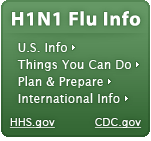
What’s New on NCI’s Websites?
February 19, 2016 by NCI Staff
NCI constantly publishes new information on its websites, so periodically we provide updates on new content of interest to the cancer community.
New Videos
Did you know that the rate of cancer deaths in the United States is going down? Learn about the rate of new cancer cases, deaths, and the most common cancers in the United States in the updated Status of Cancer video. The video is part of NCI’s Surveillance Research Program’s Did You Know? video series. Visit the Surveillance, Epidemiology, and End Results Program websitefor more interactive tools and fact sheets on cancer statistics.
Clinical trials are essential for moving new treatments from the laboratory to the clinic. A new video about the phases of clinical trials explains what’s involved in the three main steps used to test new cancer treatments.
Barnett S. Kramer, M.D., M.P.H., director of NCI’s Division of Cancer Prevention (DCP), describes the science of cancer prevention in a new video. DCP administers a broad spectrum of research that spans basic, preclinical, laboratory research, supportive and palliative care research, early detection, and randomized controlled clinical trials.
Last October, Kathy J. Helzlsouer, M.D., M.H.S., joined NCI’s Division of Cancer Control and Population Sciences as associate director of the Epidemiology and Genomics Research Program (EGRP). In a video interview, Dr. Helzlsouer speaks about her background in oncology and epidemiology, the people and experiences that drive her passion for cancer research, and her ideas about future directions for EGRP.
A new Spotlight on Scientists video features NCI Cancer Prevention Fellowship Program alumna Ashley Felix, Ph.D., M.P.H., who talks about her transition from being a pre-med student to an epidemiologist. Dr. Felix’s research focuses on studying risk factors for cancer.
New from the Center for Cancer Research
NCI’s Center for Cancer Research (CCR) has published a new issue of CCR Connections, its research and news magazine. CCR has also added several recent scientific publications to its In The Journals page.
CCR has also launched a new website for the NIH Pediatric and Wildtype GIST Clinic. NCI and the National Institute of Child Health and Human Development are collaborating to sponsor the next clinic in June 2016. You can learn more about pediatric gastrointestinal stromal tumors (GIST), as well as register for the June clinic, on the new website.
President’s Cancer Panel Launches New Website
The President’s Cancer Panel launched its new website on January 12. Visit the site to learn how the panel advises the president on the National Cancer Program.
NCI Google Hangout on Precision Medicine Clinical Trials
Last month, NCI’s Jeff Abrams, M.D., and Nita Seibel, M.D., of NCI’s Cancer Therapy Evaluation Program hosted a Google Hangout on Air to discuss the latest information on NCI’s precision medicine clinical trials, including NCI-MATCH and Pediatric NCI-MATCH. The hangout was part of a series of social media events highlighting research areas in NCI’sAnnual Plan and Budget Proposal for Fiscal Year 2017. View the archived Precision Medicine in NCI’s National Clinical Trials Network: Progress and Lessons Learned video on YouTube.
2014 Budget Fact Book Released
NCI has published its Budget Fact Book for 2014. The Budget Fact Book provides a summary of how NCI distributed its fiscal year 2014 $4.9 billion budget among its research programs; it also describes NCI funding policies related to research grant awards.
NCI Alliance for Nanotechnology in Cancer Plan and Report
NCI’s Office of Cancer Nanotechnology Research (OCNR) has released its 2015 Cancer Nanotechnology Plan, which gives OCNR’s strategic vision of the field's current state and its potential future.
OCNR has also released the 2010-2015 Alliance Phase II Program Summary, which highlights the scientific and translational advances generated by the NCI Alliance for Nanotechnology in Cancer during the previous 5-year funding period.
NCI Genomic Data Commons
Learn about the NCI Genomic Data Commons (GDC), a unified knowledge base being established by NCI’s Center for Cancer Genomics. The GDC will centralize and standardize cancer genomics datasets and associated clinical data into one location that any researcher may access. The database will promote sharing of data between researchers and facilitate precision medicine in oncology.
Cryo-EM Study Visualizes Drug Action
A new NCI study using cryo-electron microscopy (cryo-EM) shows how potential drugs could inhibit cancer. An image generated by the study of an important protein target (p97) for cancer therapies trapped in an inactive state by a new inhibitor is now available on NCI Visuals Online for public domain download and use.
New NCI Twitter Feeds
Acting NCI Director Dr. Doug Lowy has launched his own Twitter feed: @NCIDrDoug. Follow him to get his perspective on cancer research and issues important to NCI.
NCI’s Division of Cancer Treatment and Diagnosis (DCTD) and NCI’s Center for Cancer Research (CCR) are now on Twitter, as well.
DCTD facilitates clinical application of new agents, biomarkers, imaging tests, and other therapeutic interventions (radiation, surgery, immunotherapy) and expedites their initial and subsequent large-scale testing in patients. Follow DCTD @NCItreatment.
CCR is the basic and clinical intramural research program of NCI. Many CCR research projects focus on the study of rare cancers and underserved patient populations or are responsive to urgent public health needs. Follow CCR @NCIResearchCtr and learn aboutCCR’s other social media channels.
Clinical Trial for HPV-Related Cancers Featured
Doctors at NCI are testing a new immunotherapy method that targets HPV, the cause of most cervical, anal, and genital cancers, as well as many head and neck cancers. Learn more about the immunotherapy trial for patients with metastatic HPV-related cancers.






















.png)









No hay comentarios:
Publicar un comentario